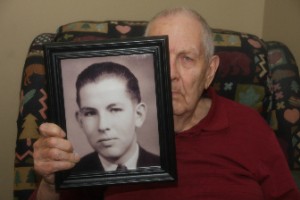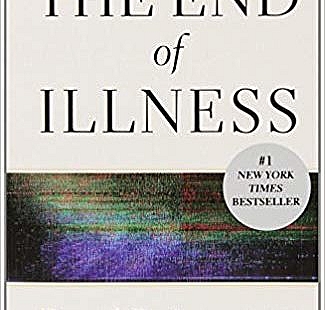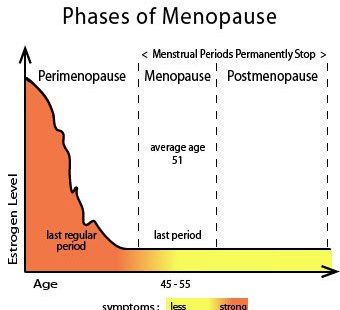Help for adult children caring for parents with dementia, from a daughter who took care of her mother and father. Both parents were diagnosed with dementia; her mother had frontal lobe dementia.
“Changing my mindset from being a daughter to being a caregiver was mostly a long slow process,” says Ellen Nielsen, a marketing and communications consultant in Edmonton, AB. “Looking back, I feel I had barely transitioned from being a young adult – getting my education and starting my career and still mostly carefree. Subtle things started changing with both parents, but it was definitely more and faster with my mother.”
Ellen also created the Facebook page Caregiver Connexion, which is where I met her! It’s a fantastic resource for adult children caring for parents with dementia.
These tips for adult children caring for parents with dementia are based on Ellen’s experience, and are in her own words. Everyone’s experience is different – but everyone needs support! The common denominator for all of us is joining together to make the journey easier to bear.
Signs of Dementia – Ellen’s Parents

Ellen Nielsen
Odd items being “stolen.” The house was ‘broken into’ several times and on one occasion my mom had directly confronted the trespasser. Her purse was stolen from the home several times. But so were other unusual items like pots and pans, towels, the vacuum cleaner … did someone really steal those items?!
Change in routine. I got a call from someone at their church saying my parents had not been there for a few weeks and when they asked my parents, they got a strange answer that didn’t really make sense. I asked my mom and she said they had been very busy as of late so had not been able to ‘make it’ to church. This was very odd because my dad was a retired pastor, and they would never have missed church for anything. (This may be one of the things that’s difficult for adult children caring for parents with dementia: the extreme and unusual behaviour changes).
Getting lost, forgetting where the car was parked. I got a call from the neighbour saying he had found my parents at the mall one day and they couldn’t find where they had parked their car. The neighbour brought them home and then they went back later to retrieve the car.
Unusual behavior. My parents made a very unusual trip from Calgary to Saskatchewan (where they had lived immediately before my dad retired), but the timelines didn’t add up with other things I knew they had been doing. They also didn’t stop in to see my brother (who lived a half hour from where they had gone) because they ‘didn’t have time to go that far.’ When I asked my mom where they had stayed, she said “My, aren’t you inquisitive?”
Initially these things were just ‘odd’ or ‘unusual’ behaviors, but more and more things started happening. My parents couldn’t explain them and avoided my questions. When I asked each of them about something separately, I got confusing answers that contradicted each other. This all happened over a period of several years. At first it was just little things that were odd or ‘off’ and gradually it became more and more serious.
If you’re an adult child caring for parents with dementia, those behaviors may seem sadly familiar.
10 Tips for Caring for Parents With Dementia
1. Grieve your loss. The most difficult part of realizing my parents had dementia was the emotions, as I started realizing that things were not well. I think I started grieving before I even realized fully what was happening. I would describe this period as if I was harnessed to a three ton rock, and that I was throwing myself against the harness repeatedly trying to move things forward, and maybe budging the rock a millimetre or two, or not at all. And the constant trying was exhausting. It also felt like I was extremely alone. I couldn’t find anyone who was sympathetic or had any understanding — even the doctor felt alien. Even adult children need to grieve the fact that they’re caring for parents with dementia.
2. Be persistent with the doctors. I tried taking my mom to the doctor (my mom’s dementia was worse than my dad). Each time I got the report back that she was ‘very healthy’ in fact ‘probably healthier than most seniors.’ This initially comforted me because it made me feel that things were okay and that it was just me finally ‘growing up’ enough to see that my parents were a bit eccentric. However as time when on it became more and more apparent that things were NOT fine. I ended up throwing a fit in the doctor’s office when I got one more diagnosis of ‘fine,’ which finally led to a diagnosis of frontal lobe dementia in my mom.
3. Get information about dementia. Learning as much as you can about dementia and aging. There are more resources now that I never had , such as web pages, youtube, Facebook, etc. Find other adult children caring for parents with dementia, and stay connected with them.
4. Take it one step at a time. This tip for adult children caring for parents with dementia is from Laurie, who worked with the Alzheimer Society in Vancouver as her practicum placement for her Master’s of Social Work at UBC: Don’t try to learn everything about dementia at once! There is so much information, research , resources, online networks – and it’s all good. But, if you try to do it all you’ll soon be overwhelmed. Take it slowly, go easy.
5. Realize dementia is not easily diagnosed. Don’t assume the medical professionals know or can diagnose easily. In fact, it is often through family anecdotes that they realize your parents have dementia. My mom could pass all of the standard cognitive tests for dementia, such as “what time does this clock say?” “Count backwards from 10.” etc.
6. Prepare for the long haul. The journey for adult children caring for parents with dementia is probably going to take everything you’ve got. Start to put in place supports for yourself, such as a support group through the Alzheimer Society, a senior centre, or your church. Hire professional caregiving support to come into the home even though your parents will probably resist it. Find volunteers to check in and help out – there are people who are interested in helping you care for your parents. It’s exhausting to be an adult child caring for parents with dementia, and it’s important to get help with the caregiving.
7. Learn how to phrase things in ways that appeal to your parent. Ironically, my marketing background taught me to phrase things in a way that appealed to my parents whenever possible. When you’re arranging for paid caregivers or caregiving services, tell them you’re “putting in supports so they can continue to stay independent and not have to go into an old folks’ home.” Or, you’re “arranging meals on wheels so mom has more time to look after dad (or vice versa), or so they “have more time to enjoy the retirement they earned.” When you’re caring for parents with dementia, you have to be creative.

Ellen’s dad
8. Appeal to your parents’ inclinations. An example of how adult children can care for parents with dementia is to go along with their beliefs. For example, my mom was put on medication for her dementia. She got blister packs that showed what medication was to be taken when, but it was apparent that she wasn’t taking them properly. So we got a nurse to come in to give them to her. And, then the medications ‘disappeared’ and my mom’s story was that the nurse stole them. So, instead of arguing with my mom, I told her I had a plan to ‘catch that nurse.’ I would lock the medications up and only give the key to the nurse. Not even my mom would get a key. If the medications disappeared we would have ‘nailed that nurse.’ This, of course, took control away from my mom and gave it to the nurse – and my mom was not unhappy because it was going to ‘prove her point.’ It’s funny that she couldn’t remember what she did yesterday, or what she had for lunch, but she couldn’t forget that Ellen had a plan and was going to ‘nail that nurse.’
9. Remember you are not alone. What I’ve learned from my own experience (and from working with other adult children caring for parents with dementia on my Facebook page) is that we feel alone and isolated. There is a lot of grief associated with the whole situation. It can feel overwhelming and exhausting. I have a “you can handle this, be grateful” personality, and I ended up making myself so stressed that I started having dizzy spells. I couldn’t even walk without holding on to someone or something else.
10. Look after your own health. Doctors don’t know what causes dementia, but they know prolonged stress does not help. So, make sure YOU don’t end up in the same place; do things to look after yourself. This is not a luxury. This is mandatory for all adult children caring for parents with dementia. Eat as best you can. Exercise your body. Exercise your brain. Get exercise. Learn meditation. Learn cognitive behaviour therapy to manage stress, anxiety, depression. Don’t be afraid to use medication if you need it. Do everything you can to stay healthy and strong, so you can continue caring for your parents through their dementia journey.
About Ellen Nielsen: She is an international supermodel. No, that’s not it. Ellen is a Bond Girl. No that’s not it either. Okay. Until last February (when her dad passed), she has also been a caregiver to two parents with dementia. Now Ellen is committed to being a caregiver for caregivers through her Facebook page Caregiver Connexion. She is also writing a series of books (as simple as children’s books, but with grownup topics) for seniors including those with early to mid-stage dementia. Her first book will be released prior to Christmas 2013. For updates check her caregiver facebook page or her website Magic Word Books.
Resources for Adult Children Caring for Parents With Dementia
- Teepa Snow on Youtube. She’s a dementia care specialist with really good information.
- Alzheimer Prevention Registry – a registry of people willing to participate in studies to find a cure or ways to prevent Alzheimer’s disease.
- Missing Jim, a blog by a young wife of a man with early onset Alzheimer’s (it’s very raw and very real).
- CaregiverSanity.com – Sandy does tapping which helps some people cope with dementia and caregiving, and also has a world-wide caregiver radio show.
- Caring for a Parent with Dementia is Challenging, Humbling is an article by an adult child caring for her mom, who had vascular dementia.
Visit your local Alzheimer Society – either in person, by phone, or online. Ask about support groups for adult children caring for parents with dementia. Check with local seniors societies for what resources are available. Look for 50+, boomer or retirement organizations. Ask the nursing home. Check with mental health. Ask your doctor. Go to the library. Go to the bookstore. Go online.
Resources for Caring for Parents With Dementia
- Tangles: A Story About Alzheimer’s, My Mother, and Me by Sarah Leavitt
- When Your Parent Becomes Your Child: A Journey of Faith Through My Mother’s Dementia by Ken Abraham
- The 36-Hour Day: A Family Guide to Caring for Persons with Alzheimer Disease, Related Dementing Illnesses, and Memory Loss in Later Life by Nancy Mace
If you have any questions or thoughts on adult children caring for parents with dementia, please comment below.






4 comments On 10 Tips for Caring for Parents With Dementia
Ellen, do you worry about the hereditary or genetic aspects of dementia? For instance, when you forget where you parked or where you put your keys (which happens sometimes!), do you get scared that dementia will visit you?
Excellent question. I am not sure whether I’m being naive, or optimistic, but I am at the end of the baby boomers. I really believe that the boomers — just as they have done for everything else my whole life (school system, work …) — will put so much pressure on the system in the coming years, that the medical community / researchers / governments are going to *have* to find solutions very soon. Like most boomers, I also have had more awareness of the need to look after myself (exercise, healthy food choices, management of stress, etc) that I am hopeful that will help hold things off until change can happen. Ultimately, though, I do fear the possibility, especially since I do not have a significant other or children to help look after me.
Ellen, do you worry about the hereditary or genetic aspects of dementia? For instance, when you forget where you parked or where you put your keys (which happens sometimes!), do you get scared that dementia will visit you?
Hello, Ellen is wonderful it’s website also wonderful she is doing very good job i have visited her Facebook and website just Amazing God bless you Ellen May you live long!